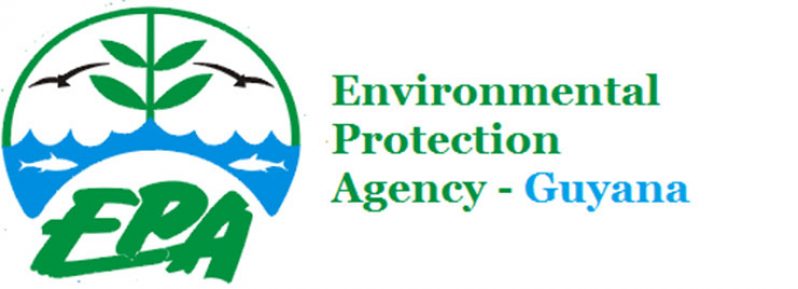THIS week as we continue to examine water, an indispensable natural resource this article will bring your attention to some water issues requiring urgent attention. Guyana is known to have many freshwater sources; however, the quality and quantity are influenced by several factors, including:
Land-use change
Construction and Management of reservoirs
Pollutants emissions
Water and Wastewater treatment and
Climate change
WATER QUALITY THROUGH THE EPA LENS
Recognising the integral role of water in our lives and the need for appropriate standards and monitoring, the EPA has a designated programme to focus on water quality. The main objectives of the programme area are:
1. To ensure implementation of, and compliance with the Environmental Protection (Water Quality) Regulations, 2000 and
2. To fulfil Guyana’s obligations to the Cartagena Convention and its associated Protocols.
WATER ISSUES OF CONCERN TO GUYANA
• Contamination from sewerage, grey water, agricultural runoffs, mining and industrial wastewater. During rainy seasons the risk of contamination is higher.
• Sewage sludge disposal systems – illegal disposal of waste into nearby canals and waterways.
• Poor mining practices – Mining is an important industry in Guyana, however, poor mining practices can be a major source of surface and groundwater contamination. High turbidity not only affects water quality but also impact valuable organisms living in the water.
• Discharge from industrial facilities directly and untreated into water bodies can cause pollution. This practice also has the potential to impact major watercourses because water bodies are interconnected.
Why is water EPA’s concern?
• Health Hazard – Contamination of surface water, if not monitored properly can cause some major health issues.
• Livelihoods – The Indigenous community especially, heavily depends on water for the livelihoods. Activities such as farming, hunting and fishing are an integral part of their lives. Additionally, many jobs, goods and services depend on freshwater.
• Guyana’s international obligations – Failure of Guyana to meet obligations under the Cartagena Convention can have devastating consequences. This means that land-based sources, the effluent discharged into the Atlantic Ocean via the internal drainage canals are required to meet certain minimum environmental standards.
• Increased pressure – on non-polluted sources of fresh water and groundwater to meet the changes in population dynamics, consumption of food, and general lifestyle of the population.
• Political tensions – Transboundary issues as a result of pollution can arise.
YOU CAN BE CHARGED!
The Environmental Protection (Water Quality) Regulations, 2000, were developed to protect Guyana’s waters by controlling discharges of effluent (waste matter) into any of the coastal and inland waters.
There are existing operations which do not hold Environmental Permits and may be unfamiliar with the provisions made in the Water Quality Regulations. The Environmental Protection (Water Quality) Regulations, 2000, requires that every person who discharges or permits the discharge of waste be registered with the EPA and obtain an Environmental Authorisation before discharge can begin. An Environmental Permit outlines conditions which must be met by the developer for treatment and discharge of wastewater. This is to ensure your wastewater discharges from your operations are at acceptable levels. The Regulations allow for fines of up to $500,000.
In order to achieve the two main objectives the WQMP currently ensures that adequate permit conditions are established for water quality management, through preliminary site inspections/collection of baseline data, as well as ensuring that there is compliance with the Environmental Authorisation through monitoring and compliance audits. The frequency of audits depends on the type of operation and the potential risk to water quality.
The EPA determines the point or source of the discharge of effluent from any facility.
You can share your ideas and questions by sending letters to: “Our Earth, Our Environment”, C/O ECEA Programme, Environmental Protection Agency, Ganges Street, Sophia, GEORGETOWN, or email us at eit.epaguyana@gmail.com or follow us on Facebook and Instagram.



.jpg)








